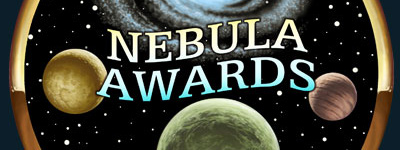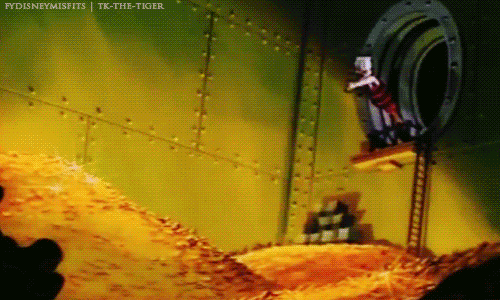The Martian; Weir, Andy [2014, Random House]
The Meat
This book has been around a while; self-published three years ago, it found a fan base and got picked up by the big leagues, and in the time I've been reading it a poster campaign has hit the London Underground walls. So this is a huge success for Weir, and in many ways deservedly-so. The set-up is great, and ripe for a film adaptation. After an accident during a storm on Mars (in the near-future) a manned mission aborts and heads for home, with one injured member lost and left for dead in the storm. He is however alive and becomes the titular Martian, the only human on an entire planet.
Descriptions of his feelings, or his surroundings are almost entirely absent; too much present-day colloquialisms ("owned", starting statements with "so") to feel right, combined with a casual jocular and slightly jock manner. Feels too samey, too safe. And the admirable technical and scientific details Reid flood the tale with take more in emotion and drama than they bring in vermissitude. I wanted the terror his humour holds at bay to surface.
Just as I was starting to get bored the narrative switched to third person of mission control back home and then it gets more interesting, however this blessing is a mixed one. When we get back to Mark on Mars's diary, it's twenty days later . The flow and intensity of the situation has been eased even more and he is still hookah about old tv shows like the geeky blogger he is rather than the trained astronaut he should be. And I still couldn't feel what he felt , couldn't get a sense of his environment and what it's like to be alone on a planet. One of the greatest and most chilling endings to a book I've read was the end to Jed mercurio's Ascent, (spoilers) with the cosmonaut stranded forever on the dark side of the moon, alone with no one aware he was there.
The log nature of the telling continued to wind me up the wrong way. When Watney writes things like "Sorry I haven't been keeping the log up to date" I felt relief that I could for once just be told what happened in one chunk. This is largely because Weir knows his stuff. And his stuff is air pressure, water supplies, drill voltage and hydrogen separation. All, literally, vital stuff for our stranded hero, and the issues with equipment, environment and maths are the fibres of his survival suit, but honestly I don't want to know how James Bond's ejector seat gets fixed, I just want to see it work.
Yet to appreciate a moment of disaster one has to have understood the previous ten pages of science. I'll admit to being a failed student and also admit to enjoying the straightforward and unpretentious way Weir guides us through telemetry or airlock pressurisation. Although I stand by my point that the wads of exposition dragged, there were also several moments where it felt like I finally had the physics teacher I would have wanted at school. However, overall, the lasting effect was for me a drain on my concentration and a further drain on the tension of the situation.
And then (spoilers) he makes contact with Nasa and soon millions are watching the daily news shows centred on his situation, and we as readers are freed from the chain of log entries, introduced to new characters and see a months-long rescue plan kick into gear. During this mid-section of the book, as the people on Earth wrestled with how to resupply, the crew who unknowingly left Watney behind wrestle with their guilt and what to do next and Watney's fate becomes more uncertain, my interest rose again and the returns from others' stories to his log entries made me fonder for them.
Still, though, his unflagging and unflappable optimism held, and no true understanding of what such isolation and fear would do to a mind emerged. This is an inter-planetary tale that remains all surface.
The Math
Baseline Assessment: 6/10
Bonuses: +1 for amazing detail and research; Reid seems to know and love his science.
Negatives: -1 for unconvincing emotional journey of main protagonist and failure to put my heart with him on Mars
Nerd Coefficient: 6/10 good but too many flaws to ignore
By English Scribbler, starman and Nerds contributor since 2013




.jpeg)









.jpeg)







